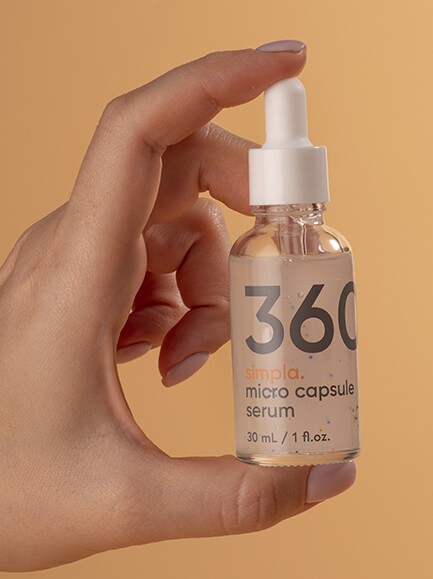Tocopherol is an organic compound that belongs to the family of tocopherols, also known as vitamin E. This vitamin is essential for the human body and plays an important role in protecting cells against free radicals and oxidative damage.
In this article, we will explore in depth what tocopherol is, how it functions in the human body, its health benefits, and how it can be obtained through diet and supplements.
What is tocopherol?
Tocopherol is a natural antioxidant and acts in conjunction with other antioxidants to protect the body’s cells against free radicals and oxidative damage.
Tocopherol is an organic compound found in a variety of foods, such as vegetable oils, nuts and dairy products. Vitamin E comes in eight different forms, with tocopherol being the most common form.
Tocopherol functions and benefits
Tocopherol has many functions and benefits in the human body, including:
- Protects cells against oxidative damage: it is a potent antioxidant that protects the body’s cells against oxidative damage caused by free radicals. Free radicals are unstable molecules that can cause damage to cells and contribute to aging and the onset of disease.
- Enhances immune function: Plays an important role in immune function by helping to stimulate the production of immune cells. This helps strengthen the immune system and prevent disease.
- Promotes cardiovascular health: Helps improve cardiovascular health by reducing inflammation and improving blood vessel function. It can also help reduce LDL cholesterol (or “bad cholesterol”) in the body.
- Prevents muscle degeneration: Tocopherol may help prevent muscle degeneration by protecting muscle cells against oxidative damage and reducing inflammation.
- Improves skin health: Tocopherol helps improve skin health by protecting against oxidative damage and reducing inflammation.
Who can benefit from tocopherol?
Tocopherol can benefit a wide variety of people, especially those at increased risk for age-related diseases and inflammation. These include:
- Older people: as we age, the body becomes less efficient at fighting oxidative damage caused by free radicals. Tocopherol can help protect the body’s cells against oxidative damage and reduce the risk of age-related diseases.
- Athletes and physically active people: Intense exercise can increase the production of free radicals in the body, which can cause oxidative damage. Tocopherol can help protect muscle cells against oxidative damage and reduce inflammation after exercise.
- People with chronic diseases: Tocopherol may be beneficial for people with chronic diseases such as diabetes, heart disease and arthritis. These diseases are related to chronic inflammation, which can be reduced by tocopherol.
- People with a nutrient-poor diet: Those who do not consume a balanced, nutrient-rich diet may benefit from tocopherol to compensate for nutrient deficiency.
Sources of tocopherol
Tocopherol is found naturally in many foods, including:
- Vegetable oils (such as olive oil).
- Nuts (such as almonds, peanuts, and walnuts)
- Seeds (such as sunflower seeds and pumpkin seeds)
- Leafy green vegetables (such as spinach and broccoli)
- Dairy products (such as milk and cheese)
In addition to obtaining tocopherol through diet, it is also possible to obtain tocopherol through supplements.
Tocopherol supplements can be found in capsule or liquid form and are available in many health food stores.
How much tocopherol is needed per day?
The recommended daily amount of tocopherol varies by age and gender. According to the Institute of Medicine guidelines, the following are the daily tocopherol recommendations for people in different age groups:
- Infants 0 to 6 months: 4 mg.
- Infants 7 to 12 months: 5 mg
- Children 1 to 3 years: 6 mg
- Children from 4 to 8 years old: 7 mg
- Children 9 to 13 years: 11 mg
- Adolescents 14 to 18 years old: 15 mg
- Adults 19 years and older: 15 mg
- Pregnant women: More than 19 mg
It is important to keep in mind that excessive consumption of tocopherol can be harmful to health. Therefore, it is important to speak with a healthcare professional before taking tocopherol supplements to determine the right amount for your individual needs.
How to incorporate tocopherol in the diet
Incorporating tocopherol-rich foods into the diet is an easy and effective way to obtain this vitamin. Here are some ideas of foods that can be incorporated into a tocopherol-rich diet:
- Add sunflower seeds to salads and breakfast cereals: sunflower seeds, sesame seeds and pumpkin seeds are rich in tocopherol. For example, one ounce (28 grams) of sunflower seeds provides about 7.4 mg of tocopherol.
- Use olive oil for cooking and salad dressings: Vegetable oils, such as wheat germ oil or olive oil, are rich in tocopherol. For example, one tablespoon of wheat germ oil provides about 20.3 mg of tocopherol.
- Consume nuts as a snack: Nuts, such as almonds, hazelnuts and macadamia nuts, are also a good source of tocopherol. For example, one ounce (28 grams) of almonds provides about 7.4 mg of tocopherol.
- Include green leafy vegetables in meals: Green leafy vegetables, such as spinach and broccoli, are a good source of tocopherol. For example, one cup of cooked spinach provides about 6.9 mg of tocopherol.
- Incorporate fruits in the diet: Fruits, such as mango, avocado and kiwi, are also a source of tocopherol. For example, one cup of mango provides about 2.3 mg of tocopherol.
Tocopherol supplements
In addition to obtaining tocopherol through diet, it is also possible to take tocopherol supplements. It is also possible to take tocopherol supplements.
However, it is important to note that tocopherol supplements are not necessary for most people if a balanced, nutrient-rich diet is followed.
Tocopherol supplements are available in various forms, including capsules, tablets and liquids. It is important to follow the manufacturer’s instructions and consult with a healthcare professional before taking tocopherol supplements to determine the right amount for your individual needs.
In addition, it is important to note that excessive consumption of tocopherol can be harmful to your health.
Tocopherol supplements may interact with certain medications, such as blood thinners, so it is important to talk to a healthcare professional before taking tocopherol supplements if you are taking any medications.
Side effects of Tocopherol
In general, tocopherol is safe for use on the skin and is unlikely to cause side effects. However, some people may experience skin irritation or an allergic reaction if they are sensitive or allergic to vitamin E.
Symptoms of an allergic reaction may include redness, itching, swelling and blistering of the skin. If you experience any of these symptoms after using a product containing tocopherol, stop using the product and consult a dermatologist.
It is also important to note that tocopherol can be comedogenic, which means it can clog skin pores and cause blackheads or acne in some people.
If you have acne-prone skin, you may want to avoid using products that contain high concentrations of tocopherol.
In addition, it is important to ensure that skin care products containing tocopherol are stored properly to avoid oxidation and degradation of the product.
Tocopherol can be unstable in the presence of light and air, so it is important to store products in a cool, dark place and to close containers tightly after each use.
Tocopherol in the skin
Tocopherol is a key ingredient in many skin care products due to its antioxidant, moisturizing and skin-protecting properties.
If you are interested in incorporating tocopherol into your skin care routine, look for products that contain vitamin E or tocopherol in the ingredient list.
Benefits of tocopherol on the skin:
- Tocopherol is known for its antioxidant properties and its ability to protect the skin from free radical damage. Free radicals are unstable molecules that can damage skin cells and cause signs of premature aging, such as fine lines, wrinkles and dark spots. Tocopherol acts as an antioxidant, neutralizing free radicals and protecting the skin from oxidative damage.
- In addition to its antioxidant properties, tocopherol is also known for its ability to improve skin hydration. Tocopherol has been shown to help reduce transepidermal water loss, which means it helps the skin retain moisture and stay hydrated.
- Tocopherol can also help improve the appearance of scars and stretch marks. Tocopherol has been shown to help reduce inflammation and promote collagen production in the skin, which can help improve the appearance of scars and stretch marks over time.
- Another benefit of tocopherol on the skin is its ability to protect the skin from damage caused by sun exposure. Tocopherol has been shown to help reduce the negative effects of UV rays on the skin, such as inflammation and redness, and may help prevent cell damage caused by prolonged sun exposure.
It is important to remember that skin care is personal and what works for one person may not work for another, so it is important to try different products and consult with a dermatologist if you have specific questions or concerns about your skin.
Brands of skin care products with tocopherol
- CeraVe: A popular brand of skin care products containing tocopherol. Their product line includes moisturizers, cleansers and eye creams.
- Neutrogena: Another popular brand of skin care products containing tocopherol. Its product line includes moisturizers, sunscreens and eye creams.
- La Roche-Posay: A French brand of skin care products containing tocopherol. Its product line includes cleansers, moisturizers and sunscreens.
- Olay: A popular brand of skin care products containing tocopherol. Its product line includes moisturizers, cleansers and eye creams.
- The Ordinary: An affordable skin care brand that offers a variety of products containing tocopherol. Its product line includes facial oils, serums and moisturizers.
- Simpla 360: A high-tech skin care serum containing deep-acting microcapsules. These microcapsules release highly concentrated active ingredients into the deepest layers of the skin, helping to delay and combat the signs of aging by increasing collagen synthesis and improving skin texture. Each Simpla 360 microsphere contains: Niacinamide, Retinyl Palmitate, Bamboo Leaf Extract, Ubiquinone, Tocopherol, Sodium Hyaluronate, Hyaluronic Acid and a Peptide complex. It is one of the most complete products on the market that includes many active ingredients in a single serum.
Learn more about >> Simpla 360

DISCLAIMER: REVIEWMAX is a review site that provides information about products sold on the Internet. The information contained on this site is not a substitute for consultation with your health care professional. This site does not sell or manufacture any pharmaceutical products.



